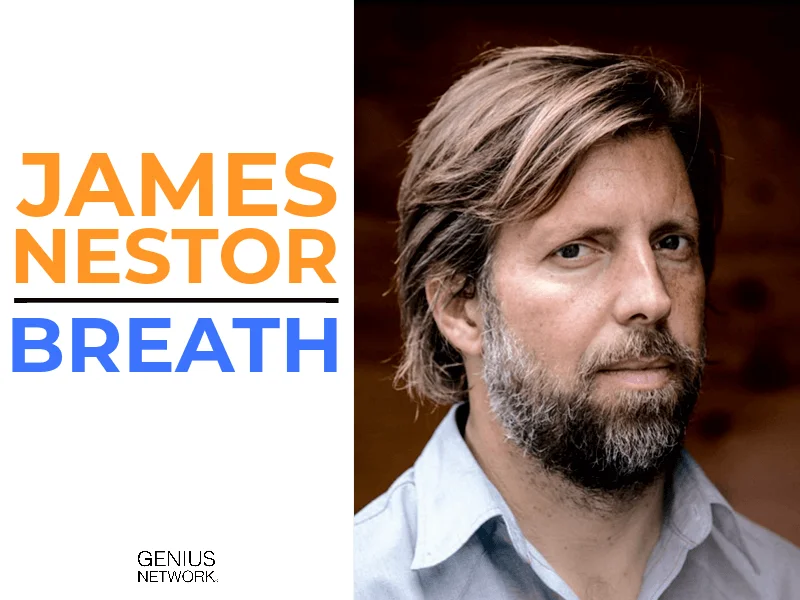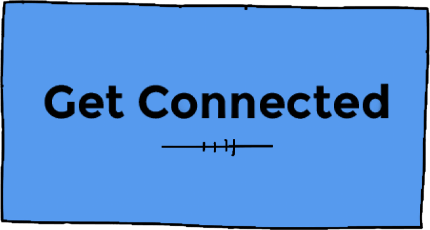
A Deep Dive Into Breath: The New Science of a Lost Art For Entrepreneurs with James Nestor #198
Episode Summary
James Nestor unveils the science of breath and its profound impact on health. Get practical insights on boosting oxygen intake, enhancing your well-being, and unlocking the secrets of optimal breathing.
If you’d like to join world-renowned Entrepreneurs (and James Nestor) at this year’s Annual Event or want to learn more about Genius Network, go to www.GeniusNetwork.com.
Here’s a glance at what you’ll discover from James in this episode:
- Why humans have lost their ability to BREATHE properly AND why so many people suffer from sleep apnea, asthma, and more
- The reason mouth breathing is so injurious to our bodies and how it affects the way we think, look, function, and metabolize
- How to get 20% more oxygen into your body, feel happier, experience more coherence (and bodily peak efficiency), AND live longer
- What James discovered after looking at thousands of years of medical texts and recent cutting-edge health studies on breathing
- A breathing method that can help you jump-start your performance, rejuvenate your body, and transform your health
- How to avoid early death, chronic diseases, high blood pressure, and other problems caused by poor breathing habits
- 96% of people suffering from PANIC reported experiencing improved outcomes by doing ONE SIMPLE THING
- Why OVERBREATHING could be inhibiting oxygen from entering your healthy cells (How to know if this is affecting you)
- The rhythmic breathing pattern for alleviating anxiety, depression, frustration and improving your memory and emotions
- A simple change you can make to IMMEDIATELY increase your breathing efficiency by 35% (Hint: ____ ____ Your Breathing!)
- ONE SECRET for influencing your liver function, stomach function, immune function, nervous system, heart rate and MORE
- What to do if you can’t seem to breathe through your nose easily AND how to adapt to nasal breathing once you’re able to do it
- Using Mouth Tape At Night: How a piece of tape could fix allergies, snoring, brain fog and increase the quality of your sleep
- A little-known exercise hack that has been shown to be very beneficial for SOME people with mild-to-moderate sleep apnea
- The role of CO2 and Oxygen in our bodies and how to properly breathe to meet your metabolic needs and function better
- A foundational health issue that you should absolutely pay attention to just as much as nutrition, sleep, and exercise
WHAT'S IN IT FOR THEM?
Get the first chapter for FREE and a limited-time viewing of "Connected: The Joe Polish Story"
Show Notes
The World of FreeDiving
- A Glimpse into the Art of Breathing
- Introduction to the world of freediving and the extraordinary abilities of divers.
- Witnessing divers hold their breath for several minutes and dive to great depths.
Beyond Competition
- Discovering divers who explore the body, connection with nature, and the healing potential of breathing techniques.
- Examples of diving with oceanic animals, such as dolphins and giant sperm whales.
- Free divers’ claims about breathing’s healing and temperature-regulating properties.
The Significance of Breathing
The Magnitude of Air Intake
- Exploring the amount of air humans breathe compared to food and drink intake.
- Understanding the impact of air intake on overall health, lifespan, and human potential.
Unveiling the Crisis of Human Breathing
Chronic Breathing Problems
- Presentation of data showcasing the prevalence of chronic breathing problems.
- Highlighting the potential consequences of untreated breathing issues, including allergies, sinusitis, ADHD, metabolic problems, and diabetes.
The Role of Human Skulls
Examining Ancient Human Skulls
- Visiting the University of Pennsylvania’s Archaeology and Anthropology Museum to analyze ancient human skulls.
- Noticing a consistent pattern of perfectly straight teeth in skulls dating back thousands and millions of years.
Evolutionary Changes
- Observing the transformation of human skulls over time, with a narrowing of jaws and insufficient space for teeth.
- Linking the jaw’s inadequate development to breathing-related problems, such as sleep apnea and snoring.
- Analyzing the impact of a smaller mouth on facial appearance and overall health.
Mouth Breathing and its Consequences
The Dangers of Mouth Breathing
- Exploring the adverse effects of mouth breathing on physical and mental well-being.
- Describing the impact on cognitive function, body functioning, metabolism, and physical appearance.
- Identifying the alarming increase in the number of chronic mouth breathers in the population.
Unveiling the Immediate Effects
- Introducing Dr. Jack or Nyack’s study on the damage caused by mouth breathing.
- Participating in a ten-day experiment with silicone plugs in the nose to simulate chronic mouth breathing.
- Measuring and comparing physiological changes during mouth breathing and nasal breathing.
Troubling Results
- Observing elevated blood pressure and increased snoring during mouth breathing.
- Sharing personal experiences and data revealing the significant impact of mouth breathing on sleep quality and apnea.
Effects of Snoring and Sleep Apnea
- Snoring and sleep apnea can have serious consequences on overall health.
- Increased risk of chronic diseases and a shorter lifespan are among the potential outcomes.
- Scientific understanding of these effects is still emerging.
Blood Pressure and Hypertension
- The experiment also examined the impact of nasal breathing on blood pressure.
- Blood pressure measurements showed a decrease after shifting to nasal breathing.
- Over the course of a week, blood pressure dropped by about 40 points and remained lower than mouth breathing levels.
Importance of Nasal Breathing
- Nasal breathing offers advantages in terms of air conditioning and filtration.
- The nasal passages are equipped with cilia, hair-like structures that remove particulate matter and pathogens.
- Nitric oxide, produced in the nose, has been shown to interact with viruses and promote health.
- Breathing through the nose provides approximately 20% more oxygen absorption compared to mouth breathing.
Rhythmic Breathing
- Research on prayer and mantras suggests a beneficial breathing pattern of five to six seconds inhalation and exhalation.
- Studies have shown that this pattern can lower heart rate, increase brain oxygenation, and induce coherence in body systems.
- Practicing this breathing pattern can have positive effects on memory, emotion, and overall well-being.
The Impact of Breathing Rate
- Overbreathing is a common issue in modern society, hindering oxygen absorption into healthy cells.
- Slowing down the breathing rate to about six breaths per minute enhances oxygen utilization by 35%.
- Slow breathing has shown promising results in managing anxiety, depression, panic disorders, and asthma.
Breathing Techniques for Health
- Breathing practices have been utilized for thousands of years in various cultures.
- Heat generation and control, as demonstrated by monks and practitioners like Wim Hof, can be achieved through breathwork.
- Breathing exercises have also been associated with improved immune function and autoimmune condition management.
The Power of Breath Awareness
- While we may not have direct control over some bodily functions, breathing offers an avenue for influencing them.
- Conscious breathing can modulate the nervous system, immune response, and overall health.
- Experts in the field, such as Carl Stough and Richard Brown, have successfully used breathwork in therapeutic contexts.
Conclusion
- The scientific evidence supporting the profound impact of breathing on health is growing.
- By understanding and appreciating the power of breath, individuals can address chronic health issues and enhance their well-being.
- Ancient wisdom and modern research converge to highlight the importance of conscious, nasal breathing for a healthier and longer life.
Resources
- Breath: The New Science of a Lost Art by James Nestor
- Myo Tape
- Mute Nasal Dilators
- Moldy The Movie
- Genius Network Annual Event





